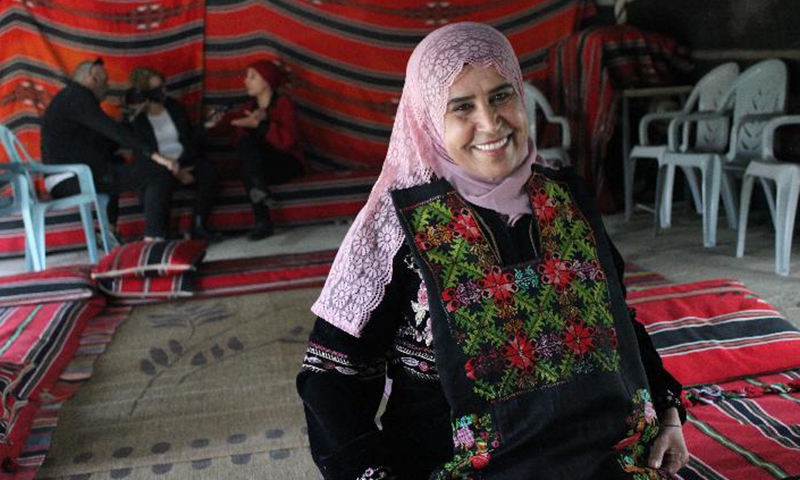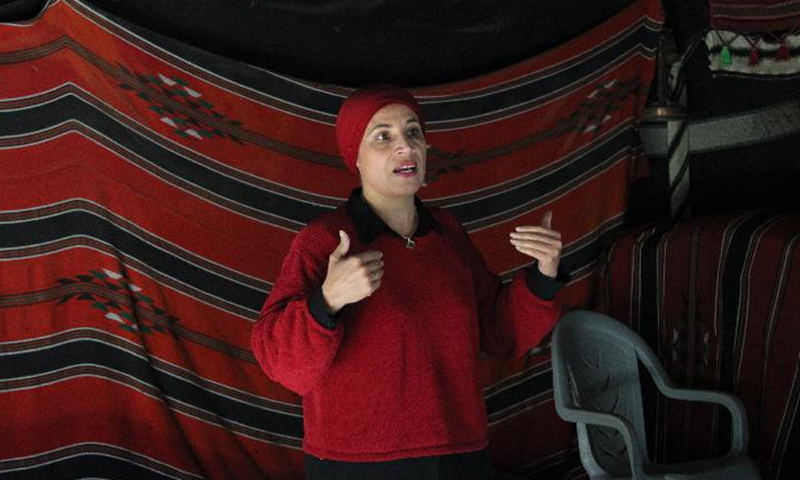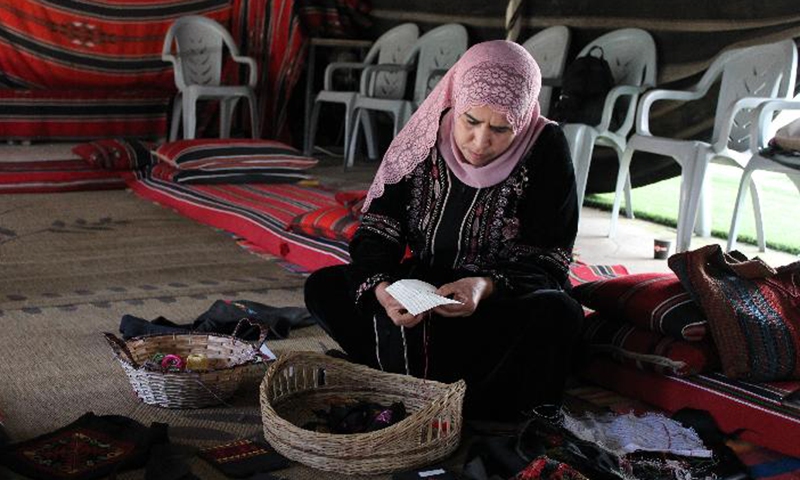
A Bedouin woman shows her embroidery work in the visitor center in Lakiya, Israel on Feb. 27, 2022.Photo:Xinhua
Bedouin women living in Israel mark International Women's Day by continuing to promote their status in the traditional patriarchal society they were born into.
The Desert Embroidery Educational Visitor Center in the Bedouin city of Lakiya is one of the local initiatives to empower women to attain equality through the improvement of their economic, educational and social status.
"For us, every day is Women's Day, and we were constantly trying to have our voices heard and to have a place in our community, a male-dominated community," said Adan Alhjooj, one of the activists in the project.

Amal Elsana-Alh'jooj gives a speech in the visitor center in Lakiya, Israel on Feb. 27, 2022.Photo:Xinhua
Her mother, Dr. Amal Elsana-Alh'jooj, is the co-founder of the project. She started with teaching older women how to write and read, and gradually developed a love for feminism. Now she is a renowned activist and leader that fights for Bedouin women's rights.
"I was born as a fifth girl to a Bedouin family, which for many people is kind of a tragedy because everyone wanted to have a boy and not a girl," said Elsana-Alh'jooj.
"But I decided that I don't want to play the role of the victim and saying, oh, I was born in a patriarchal system, I am a girl, I have no rights."
Instead, she chose to change the reality.
She started at a very early age her journey for equality. As a child, Elsana-Alh'jooj saw her mother giving her brother a nicer piece of chicken. "I jumped on my brother and took his piece," she said.
"I knew that if I'm not fighting over these small things then, I wouldn't be able to fight over big things in the future."

A Bedouin woman works on embroidery in the visitor center in Lakiya, Israel on Feb. 27, 2022.Photo:Xinhua
Elsana-Alh'jooj recalled that her leadership spirit was born when she was a six-year-old shepherdess "taking 50 sheep, three cows, a donkey, and running to the mountains of Lakiya."
Instructing workshops of embroidery, selling clothes, garments, and accessories that tell the stories of Bedouin women, heritage, as well as their complex reality have become a tourist attraction.
Nowadays, more and more Bedouin women are working compared with two decades ago. Back then, more than 80 percent were unemployed. The government put a lot of effort into changing it, so Israel could join the Organization for Economic Cooperation and Development (OECD), according to Elsana-Alh'jooj.
The embroidery initiative also helped some married women with no legal status in the country. Most of them were former residents of the West Bank or Gaza strip, or abandoned wives of polygamist Bedouin.
For these women, the embroidery project is the only source of income.
"This is the only way that they can survive here," said Elsana-Alh'jooj.
Bedouins in Israel are concentrated mainly in the Negev desert alongside southern country, and some live in several adjacent cities.
